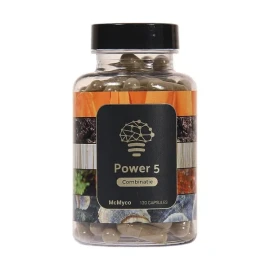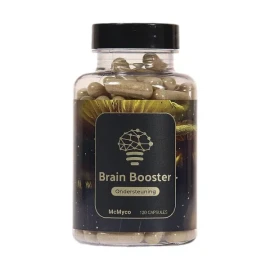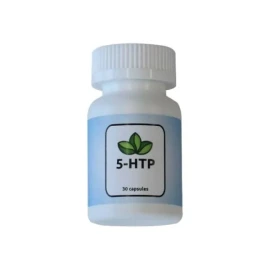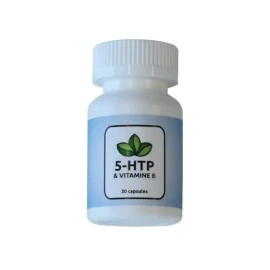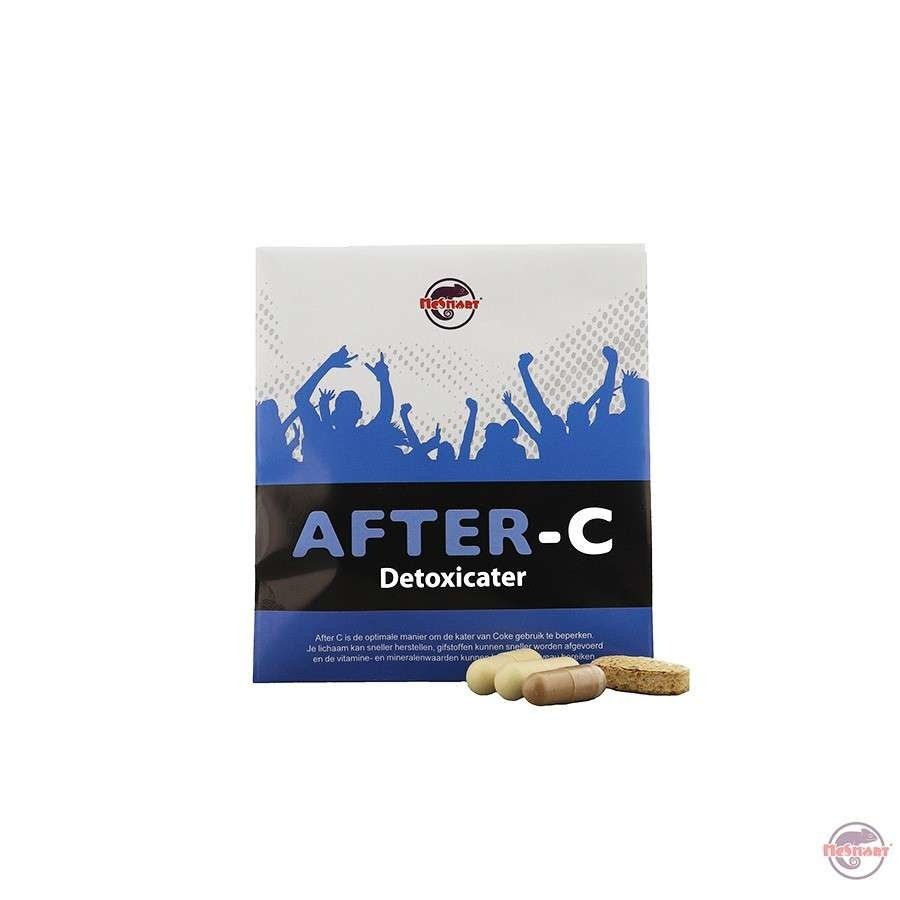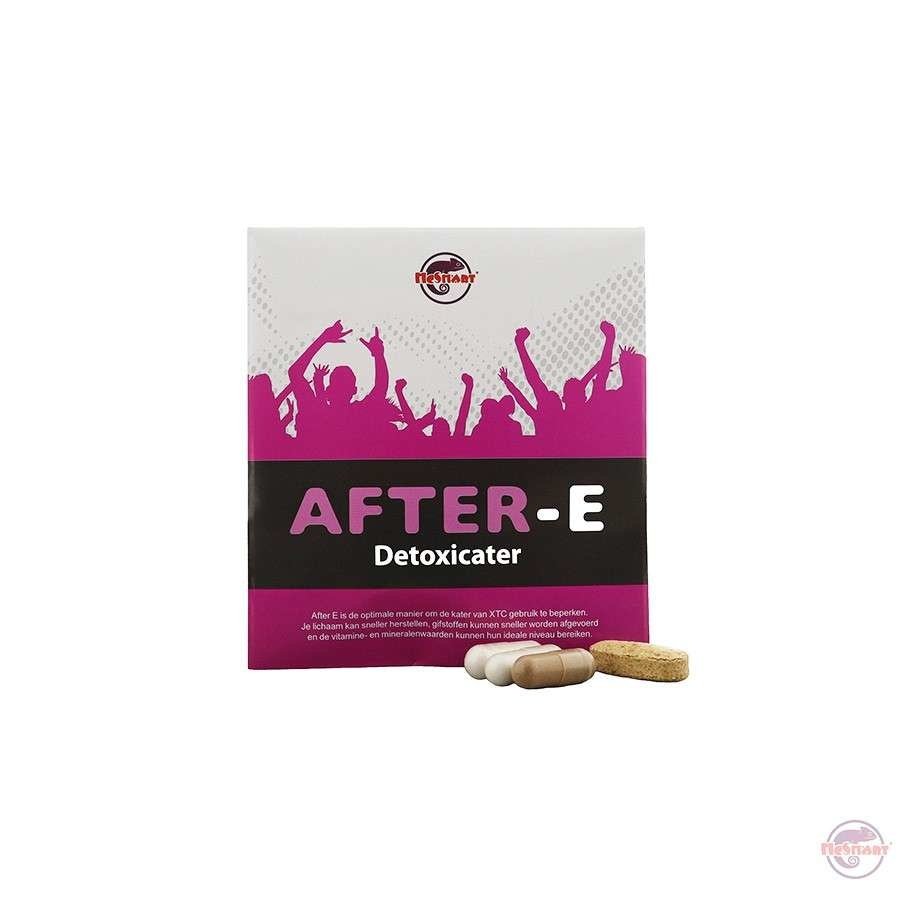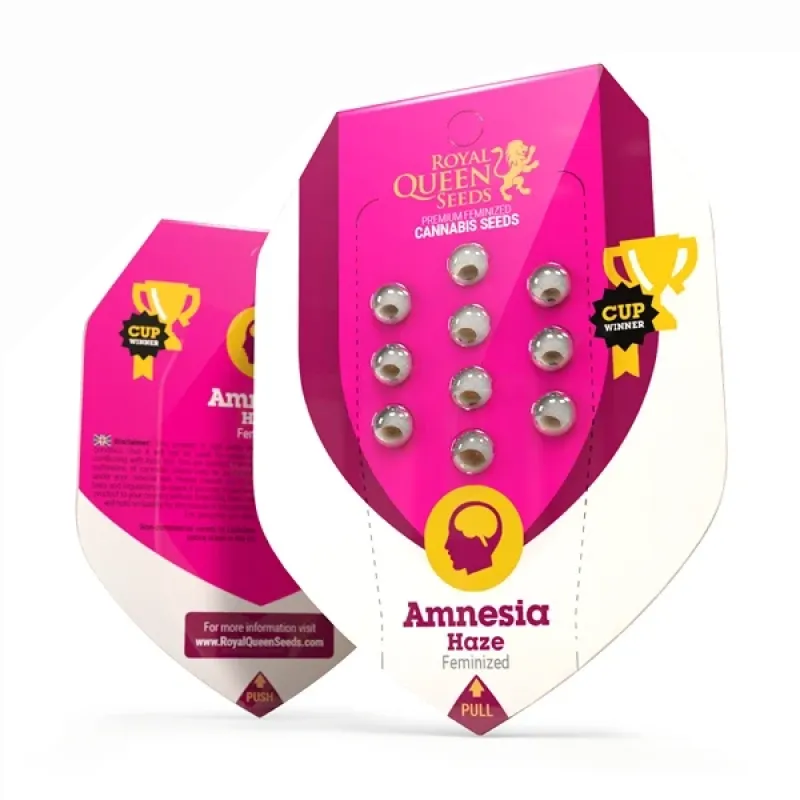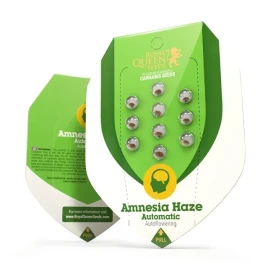Brain Booster capsules
35,00 €
What Are Brain Booster Capsules?
Brain booster capsules represent a category of dietary supplements containing compounds intended to support cognitive function, mental clarity, and overall brain health. These formulations typically combine nootropic substances, vitamins, minerals, and herbal extracts designed to enhance various aspects of mental performance.
The term “nootropic” refers to substances that may improve cognitive function, particularly executive functions like memory, creativity, or motivation in healthy individuals. Brain booster capsules differ from prescription stimulants in their mechanism of action and regulatory classification, falling under dietary supplement regulations rather than pharmaceutical oversight.
Users seek these supplements for multiple reasons: students and professionals looking for enhanced focus during demanding periods, older adults interested in cognitive maintenance, and health-conscious individuals pursuing nutritional support for brain function. Some formulations target acute effects like improved concentration within hours, while others aim for long-term benefits through sustained use over weeks or months.
Understanding realistic expectations proves crucial when considering these supplements. While some ingredients demonstrate measurable cognitive improvements in clinical settings, effects vary significantly between individuals. Factors including baseline nutrient status, genetics, sleep quality, stress levels, and overall health influence how the body responds to nootropic compounds.
The supplement industry offers brain boosters in various forms, from single-ingredient capsules containing specific compounds like Lion’s Mane mushroom to complex multi-ingredient stacks combining dozens of substances. Proprietary blends often mask individual ingredient dosages, making it difficult to assess whether formulations contain clinically effective amounts of active compounds.
Evidence At-A-Glance
Quick Reference Safety Flags
- Pregnancy/Breastfeeding: Most cognitive supplements lack safety data for pregnant or nursing individuals
- Drug Interactions: Particular caution with anticoagulants, antidepressants, and stimulant medications
- Contamination Risk: Third-party testing essential due to documented cases of undisclosed pharmaceutical compounds
Bottom Line Recommendation
Consult healthcare providers before starting cognitive supplements, prioritize products with transparent labeling and third-party testing, and maintain realistic expectations about potential benefits.
How Brain Boosters Work — Mechanisms Explained
Brain booster capsules employ several theoretical mechanisms to influence cognitive function, though the complexity of brain chemistry means these pathways often overlap and interact in ways not fully understood.
Neurotransmitter Support forms a primary mechanism for many ingredients. Compounds like choline precursors aim to boost acetylcholine production, a neurotransmitter crucial for attention and learning. B vitamins support the synthesis of various neurotransmitters including serotonin, dopamine, and GABA, which influence mood, motivation, and cognitive processing speed.
Neurotrophic Effects represent another significant pathway, particularly with mushroom-derived compounds. Lion’s Mane mushroom contains compounds called hericenones and erinacines that may stimulate nerve growth factor (NGF) and brain-derived neurotrophic factor (BDNF) production. These proteins support neuron survival, growth, and the formation of new neural connections, potentially contributing to improved cognitive flexibility and memory formation.
Antioxidant and Anti-inflammatory Actions protect brain tissue from oxidative stress and chronic inflammation, both linked to cognitive decline. Vitamin C, polyphenols from plant extracts, and certain amino acids may help neutralize free radicals and reduce inflammatory markers in brain tissue, potentially preserving cognitive function over time.
Micronutrient Correction addresses deficiencies that can impair cognitive performance. B vitamins, zinc, and other essential nutrients play fundamental roles in brain metabolism. When deficient, cognitive function may suffer, and supplementation can restore normal performance. However, benefits typically plateau once adequate levels are achieved, with little evidence supporting cognitive enhancement beyond physiological needs.
The distinction between acute and chronic effects proves important for understanding how these mechanisms translate to real-world benefits. Some compounds may improve cognitive speed or attention within hours of consumption, while structural changes like increased neurogenesis may require weeks or months of consistent use to manifest measurable improvements.
Lion’s Mane Mushroom
Lion’s Mane mushroom (Hericium erinaceus) stands out among cognitive supplements due to emerging clinical evidence supporting its nootropic properties. This distinctive white, shaggy mushroom contains unique bioactive compounds that research suggests may support brain health and cognitive function.
Mechanism of Action: Lion’s Mane contains hericenones and erinacines, compounds that appear to stimulate the production of nerve growth factor (NGF) and brain-derived neurotrophic factor (BDNF). These proteins play crucial roles in neuron survival, growth, and the formation of new neural connections. The mushroom’s anti-inflammatory properties may also contribute to its cognitive benefits by reducing neuroinflammation.
Clinical Evidence: A notable 2023 double-blind trial demonstrated that acute supplementation with 1.8 grams of Lion’s Mane extract improved performance on the Stroop test, a measure of cognitive processing speed and executive function, with statistical significance (p=0.005) observed just 60 minutes after consumption. This study suggests potential for immediate cognitive benefits.
Longer-term studies have shown promise for sustained cognitive support. Research involving older adults with mild cognitive impairment found that 3 grams daily of Lion’s Mane powder over 16 weeks led to improvements in cognitive test scores compared to placebo groups. These findings suggest potential benefits for cognitive maintenance in aging populations.
Dosing and Safety: Clinical trials have used varying doses ranging from 1.8 grams for acute effects to 3 grams daily for chronic supplementation. Most studies report good tolerability with minimal side effects. However, long-term safety data remains limited, and individuals with mushroom allergies should exercise caution.
Practical Takeaway: Lion’s Mane shows the most promising evidence among cognitive supplements for both acute and chronic cognitive support. It may benefit individuals seeking focus enhancement or older adults interested in cognitive maintenance, though more extensive long-term studies would strengthen the evidence base.
B Vitamins (B6, B9/Folate, B12)
B vitamins play fundamental roles in brain metabolism and cognitive function, making them common ingredients in brain booster formulations. These water-soluble vitamins work synergistically to support neurotransmitter synthesis, DNA repair, and homocysteine metabolism.
Mechanism of Action: B vitamins serve as cofactors in numerous enzymatic reactions essential for brain function. Vitamin B6 supports the synthesis of neurotransmitters including serotonin, dopamine, and GABA. Folate (B9) and B12 work together in one-carbon metabolism, crucial for DNA synthesis and methylation reactions that affect gene expression. These vitamins also help convert homocysteine to methionine, preventing accumulation of this potentially neurotoxic amino acid.
Clinical Evidence: Research consistently demonstrates that B vitamin deficiencies can impair cognitive function, with supplementation effectively restoring normal performance in deficient individuals. Studies show stronger evidence for cognitive benefits when correcting deficiencies rather than providing supra-physiological doses to individuals with adequate status. Elevated homocysteine levels, often indicating B vitamin deficiency, correlate with increased risk of cognitive decline and dementia.
Population studies reveal that subclinical B vitamin deficiencies are more common than previously recognized, particularly among older adults, vegetarians, and individuals with certain medical conditions or medications that affect absorption.
Dosing and Safety: Recommended dietary allowances provide baseline requirements, but therapeutic doses may be higher when addressing deficiencies. B vitamins are generally well-tolerated due to their water-soluble nature, though very high doses of B6 can cause peripheral neuropathy with prolonged use.
Practical Takeaway: B vitamin supplementation makes sense for individuals with documented deficiencies or risk factors for inadequate intake. Testing B12, folate, and homocysteine levels can help determine if supplementation would be beneficial, as benefits are most pronounced when correcting deficiencies rather than supplementing adequate levels.
Vitamin C
Vitamin C supports brain health through its antioxidant properties and role in neurotransmitter synthesis, though evidence for cognitive enhancement in healthy individuals remains limited compared to its benefits in addressing deficiency states.
Mechanism of Action: As a powerful antioxidant, vitamin C protects brain tissue from oxidative stress caused by free radicals. It also serves as a cofactor in the synthesis of norepinephrine and other neurotransmitters. Vitamin C concentrations in the brain are significantly higher than in other tissues, suggesting particular importance for neural function.
Clinical Evidence: Studies indicate that approximately 20% of adults may have marginal vitamin C deficiency, which can impact cognitive performance. Research shows correlations between vitamin C status and cognitive function, with deficient individuals experiencing improvements in memory and attention following supplementation. However, evidence for cognitive enhancement in individuals with adequate vitamin C status remains limited.
Observational studies suggest associations between higher vitamin C intake and reduced risk of cognitive decline, but controlled trials in healthy populations have not consistently demonstrated cognitive benefits beyond deficiency correction.
Dosing and Safety: Typical supplement doses range from 500-1000 mg, well above the recommended dietary allowance of 90 mg for men and 75 mg for women. Vitamin C is generally safe due to rapid excretion of excess amounts, though doses above 2000 mg may cause gastrointestinal upset in sensitive individuals.
Practical Takeaway: Vitamin C supplementation may benefit individuals with inadequate dietary intake or those at risk for deficiency, but evidence for cognitive enhancement in healthy individuals with adequate status remains insufficient to recommend routine supplementation solely for cognitive benefits.
Zinc
Zinc plays essential roles in brain development, neurotransmitter function, and cognitive performance, making it a relevant component of brain health supplements. However, the relationship between zinc supplementation and cognitive enhancement depends heavily on baseline zinc status.
Mechanism of Action: Zinc serves as a cofactor for over 300 enzymes and plays crucial roles in neurotransmitter synthesis, synaptic transmission, and neuroplasticity. It modulates NMDA receptor function, influences long-term potentiation associated with memory formation, and supports the structure and function of zinc finger proteins involved in gene regulation.
Clinical Evidence: Global zinc deficiency affects an estimated 17% of the population, with higher rates in certain geographic regions and demographic groups. Studies consistently show that correcting zinc deficiency improves cognitive function, attention, and neurological development. However, evidence for cognitive benefits from zinc supplementation in individuals with adequate zinc status remains limited.
Research demonstrates that zinc deficiency during critical developmental periods can have lasting effects on cognitive function, while supplementation in deficient populations shows measurable improvements in memory, attention, and processing speed.
Dosing and Safety: The recommended dietary allowance for zinc is 8 mg for women and 11 mg for men. Therapeutic doses may be higher when addressing deficiency, but excessive zinc intake can interfere with copper absorption and cause gastrointestinal upset. Long-term high-dose supplementation may lead to copper deficiency and immune system impairment.
Practical Takeaway: Zinc supplementation benefits individuals with documented deficiency or risk factors for inadequate intake, including vegetarians, older adults, and those with malabsorption conditions. Testing zinc status before supplementation helps determine appropriate dosing and duration.
Amino Acids and Cholinergic Precursors
Various amino acids and choline-containing compounds appear in brain booster formulations based on their roles in neurotransmitter synthesis and cellular energy metabolism. These include acetyl-L-carnitine, choline, and CDP-choline (citicoline).
Mechanism of Action: Acetyl-L-carnitine supports mitochondrial function and may cross the blood-brain barrier more effectively than regular L-carnitine, potentially supporting cellular energy production in brain tissue. Choline serves as a precursor to acetylcholine, a neurotransmitter crucial for attention, learning, and memory. CDP-choline provides both choline and cytidine, supporting both neurotransmitter synthesis and membrane phospholipid production.
Clinical Evidence: Research on acetyl-L-carnitine shows modest benefits for cognitive function in older adults, particularly those with mild cognitive impairment. Studies suggest improvements in attention and memory, though effect sizes are generally small to moderate. CDP-choline research indicates potential benefits for cognitive function and recovery from brain injury, with some studies showing improvements in memory and attention tasks.
Choline supplementation studies produce mixed results, with benefits more apparent in individuals with inadequate dietary choline intake. The cognitive effects of choline precursors may depend on baseline acetylcholine levels and the efficiency of individual cholinergic systems.
Dosing and Safety: Effective doses vary by compound, with acetyl-L-carnitine typically studied at 1-3 grams daily and CDP-choline at 250-1000 mg daily. These compounds are generally well-tolerated, though high doses may cause gastrointestinal upset or a fishy body odor in some individuals.
Practical Takeaway: Amino acid and choline precursors may offer modest cognitive benefits, particularly for older adults or individuals with suboptimal neurotransmitter function. However, effects are generally subtle and may not be noticeable in healthy young adults with adequate nutritional status.
Adaptogens and Stimulants
Many brain booster formulations include adaptogenic herbs like ginseng and rhodiola, along with caffeine-based compounds, which can provide acute alertness and stress resilience benefits, though long-term cognitive enhancement evidence remains limited.
Mechanism of Action: Adaptogens theoretically help the body manage stress by modulating the hypothalamic-pituitary-adrenal axis and supporting homeostasis. Ginseng contains ginsenosides that may influence neurotransmitter systems and energy metabolism. Rhodiola contains rosavins and salidroside that may affect serotonin and dopamine levels. Caffeine blocks adenosine receptors, promoting alertness and reducing perceived fatigue.
Clinical Evidence: Short-term studies of ginseng show improvements in working memory and attention, though effects are often modest and may depend on the specific ginseng species and standardization. Rhodiola research suggests benefits for mental fatigue and stress-related cognitive impairment, particularly during demanding periods.
Caffeine consistently demonstrates acute cognitive benefits including improved attention, reaction time, and working memory, though tolerance develops with regular use. The combination of caffeine with other compounds may provide synergistic effects, though research on specific combinations remains limited.
Dosing and Safety: Effective doses vary significantly between compounds. Ginseng studies typically use 200-400 mg of standardized extract, while rhodiola research employs 200-600 mg daily. Caffeine effects occur at doses of 50-200 mg, though individual sensitivity varies considerably.
Practical Takeaway: Adaptogenic compounds and caffeine can provide short-term cognitive and alertness benefits, making them useful for acute performance demands. However, evidence for long-term cognitive enhancement remains insufficient, and regular stimulant use may lead to tolerance and dependence.
Evidence Quality Assessment
High-Quality Evidence
Lion’s Mane Mushroom: Multiple randomized controlled trials demonstrate both acute and chronic cognitive benefits with consistent methodology and measurable effect sizes.
Moderate-Quality Evidence
B Vitamins: Strong evidence for cognitive benefits when correcting deficiencies, though benefits in adequate populations less clear.
Zinc: Well-established benefits for deficiency correction with good mechanistic understanding, limited evidence for enhancement beyond adequacy.
Low-to-Moderate Evidence
Vitamin C: Clear correlation between deficiency and cognitive impairment, limited evidence for enhancement in healthy populations.
Amino Acids/Choline Precursors: Some positive studies but generally small effect sizes and inconsistent results across populations.
Insufficient Evidence
Most Proprietary Blends: Lack of clinical trials testing specific multi-ingredient formulations as sold commercially.
Synergistic Claims: Limited research validating enhanced effects from ingredient combinations compared to individual compounds.
Safety Considerations and Interactions
Brain booster supplements require careful consideration of safety factors, particularly for individuals with existing medical conditions or those taking medications.
High-Risk Populations: Pregnant and breastfeeding women should avoid most cognitive supplements due to limited safety data. Children and adolescents have developing nervous systems that may respond differently to nootropic compounds. Older adults taking multiple medications face increased interaction risks.
Drug Interactions: Zinc supplementation can reduce absorption of certain antibiotics and may interact with medications for Wilson’s disease. B vitamins, particularly B6, can affect the metabolism of certain medications including anticonvulsants. Caffeine and stimulant-containing supplements may interact with stimulant medications, antidepressants, and cardiovascular drugs.
Contamination Risks: Independent testing has identified undisclosed pharmaceutical compounds in some cognitive supplements, including prescription stimulants and other controlled substances. This contamination poses serious health risks and legal concerns for users.
Toxicity Thresholds: While most cognitive supplement ingredients have good safety profiles at recommended doses, excessive intake can cause problems. High-dose zinc supplementation can lead to copper deficiency and immune suppression. Excessive B6 intake may cause peripheral neuropathy with prolonged use.
Safety Best Practices: Start with single-ingredient supplements to assess individual tolerance. Monitor for adverse effects including headaches, gastrointestinal upset, sleep disturbances, or mood changes. Discontinue use if concerning symptoms develop and consult healthcare providers for persistent issues.
Quality Assessment and Label Reading
Evaluating supplement quality requires understanding what to look for on product labels and how to verify manufacturing standards.
Essential Label Information: Complete ingredient lists with specific doses for each component, avoiding products that hide doses behind “proprietary blend” terminology. Serving size information should clearly indicate how many capsules constitute a full dose. Batch numbers and expiration dates enable tracking and ensure product freshness.
Third-Party Testing: Look for products tested by independent laboratories such as USP, NSF International, ConsumerLab, or Informed Sport. These organizations verify that products contain labeled ingredients in stated amounts and test for contaminants including heavy metals, pesticides, and undisclosed pharmaceutical compounds.
Manufacturing Standards: Good Manufacturing Practices (GMP) certification indicates adherence to quality control standards during production. ISO certifications provide additional assurance of systematic quality management.
Sourcing Transparency: Quality manufacturers provide information about raw material sources and extraction methods. For botanical ingredients like Lion’s Mane, standardization to specific bioactive compounds indicates more consistent potency.
Red Flags: Avoid products making unrealistic health claims, using terms like “miracle” or “breakthrough,” or promising dramatic cognitive improvements. Products with unclear labeling, mismatched foreign language labels, or prices significantly below market averages may indicate quality issues.
Regulatory Landscape
Understanding regulatory frameworks helps consumers navigate the global supplement market and set appropriate expectations for product oversight.
United States: The Dietary Supplement Health and Education Act (DSHEA) classifies cognitive supplements as dietary supplements rather than drugs, meaning they can be sold without pre-market safety and efficacy approval. The FDA can take action against products after they reach the market if safety issues arise or if manufacturers make unauthorized health claims.
European Union: The European Food Safety Authority (EFSA) maintains stricter oversight of supplement health claims and requires pre-market approval for novel food ingredients. Many cognitive supplement ingredients available in the US require special authorization in the EU.
United Kingdom: Post-Brexit regulations maintain many EU standards while allowing some additional flexibility. The Medicines and Healthcare products Regulatory Agency (MHRA) oversees supplement safety and labeling requirements.
Canada and Australia: Health Canada and the Therapeutic Goods Administration maintain intermediate regulatory approaches, requiring product registration and evidence for health claims while allowing broader ingredient access than the EU.
Global Considerations: Travelers should research local regulations before bringing supplements across borders, as some ingredients legal in one country may be controlled substances elsewhere.
Expectation Management and Placebo Effects
Realistic expectations prove crucial for evaluating cognitive supplement effectiveness and avoiding disappointment with subtle or variable effects.
Common Marketing Myths: No supplement can dramatically increase IQ, “rewire” the brain overnight, or provide pharmaceutical-level cognitive enhancement. Claims about “unlocking brain potential” or accessing unused brain capacity lack scientific foundation.
Placebo Response: Cognitive supplements often produce subjective improvements that may not correlate with objective performance measures. The placebo effect in cognitive enhancement can be substantial, particularly for subjective measures like perceived focus or mental energy.
Individual Variability: Genetic differences in neurotransmitter metabolism, baseline nutrient status, sleep quality, stress levels, and overall health significantly influence supplement responses. What works for one person may not work for another, even with identical products and dosing.
Realistic Timelines: Acute effects like improved alertness may occur within hours for certain ingredients, while structural changes supporting memory or cognitive flexibility may require weeks to months of consistent use to manifest measurable benefits.
Practical Decision Framework
Before considering cognitive supplements, evaluate your individual situation using this systematic approach:
Assess Baseline Status: Consider whether dietary inadequacies, sleep deprivation, chronic stress, or medical conditions might be impacting cognitive function. Addressing these fundamental factors often provides more significant benefits than supplementation.
Define Goals: Clarify whether you seek acute performance enhancement for specific situations or long-term cognitive support. Different supplements may be appropriate for these distinct goals.
Evaluate Risks: Review current medications, medical conditions, and personal risk factors that might make certain supplements inappropriate or require medical supervision.
Start Simple: Begin with single-ingredient supplements with the strongest evidence base rather than complex multi-ingredient formulations. This approach allows better assessment of individual ingredient effects and tolerance.
Monitor Progress: Establish baseline measurements of cognitive performance and mood before starting supplementation. Track changes objectively rather than relying solely on subjective impressions.
Sample Clinician Questions: Prepare specific questions for healthcare providers: “Could this interact with my current medications?” “Would blood tests help determine if I might benefit from specific nutrients?” “What dose would be appropriate for my situation?”
User Experience Patterns
Understanding common user experiences helps set realistic expectations and identify normal versus concerning responses to cognitive supplements.
Immediate Effects: Users often report increased alertness and perceived focus within hours of taking supplements containing caffeine or other stimulants. These acute effects may diminish with regular use as tolerance develops.
Subtle Long-Term Changes: Many users describe gradual improvements in mental clarity, memory, or cognitive endurance over weeks to months of consistent use. These effects are often subtle and may only become apparent when comparing performance to pre-supplementation baseline.
Variable Responses: Individual responses vary significantly based on baseline nutrient status, genetics, lifestyle factors, and placebo effects. Some users notice clear benefits while others experience no discernible changes with identical products.
Common Side Effects: Mild gastrointestinal upset, headaches, or sleep disturbances occur in some users, particularly when starting new supplements or taking doses on an empty stomach. Most side effects resolve with dose adjustment or discontinuation.
The variability in user experiences underscores the importance of personal experimentation under appropriate guidance and realistic expectation setting.
Decision Checklist
Use this comprehensive checklist before starting any cognitive supplement regimen:
Pre-Purchase Assessment:
- Research ingredients individually and verify clinical evidence
- Check for third-party testing certifications and transparent labeling
- Confirm no interactions with current medications or medical conditions
- Verify legal status in your location
Safety Verification:
- Consult healthcare provider if taking medications or having medical conditions
- Start with lowest effective doses and single-ingredient products
- Plan monitoring strategy for tracking effects and side effects
- Establish clear discontinuation criteria
Quality Confirmation:
- Verify manufacturer GMP certification and quality standards
- Request Certificate of Analysis for specific batch testing results
- Confirm ingredient standardization and potency specifications
- Check for appropriate storage and handling requirements
Monitoring Plan:
- Establish baseline cognitive performance measurements
- Plan regular assessment intervals (4-12 weeks minimum)
- Track both subjective experiences and objective performance measures
- Monitor for adverse effects and document any concerning changes
This systematic approach helps maximize potential benefits while minimizing risks associated with cognitive supplement use.
Related Products
Frequently Asked Questions
Everything You Need to Know


